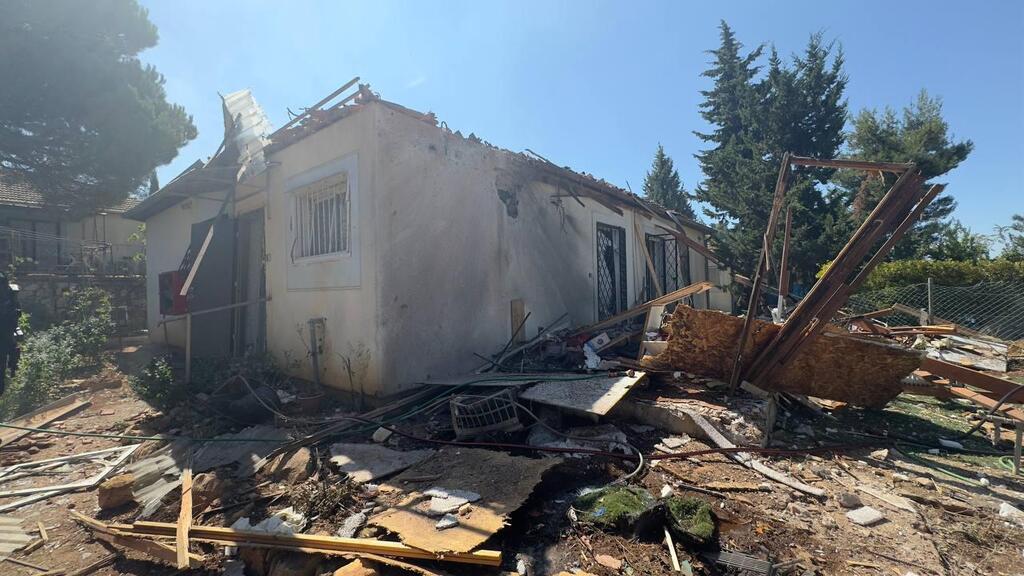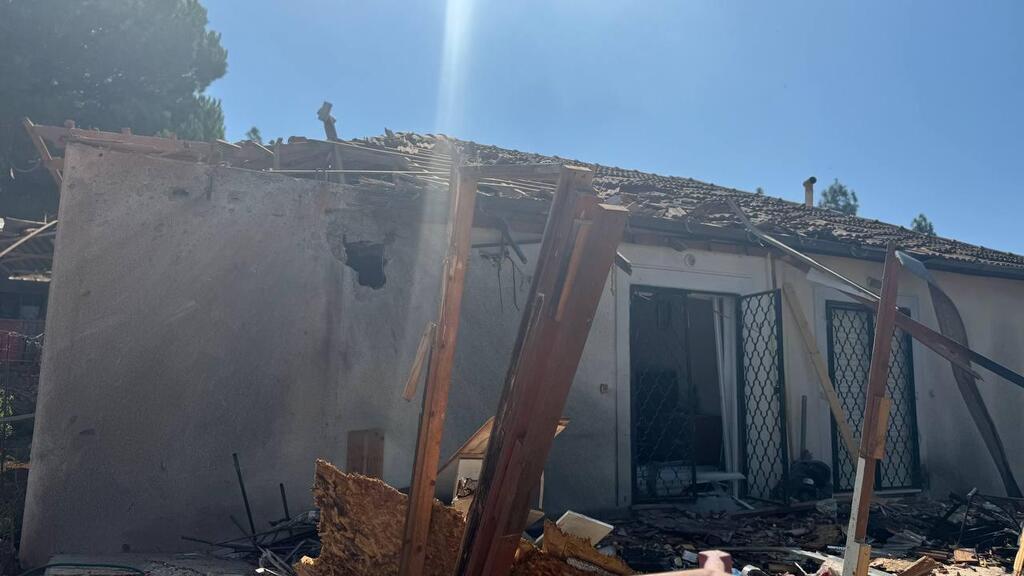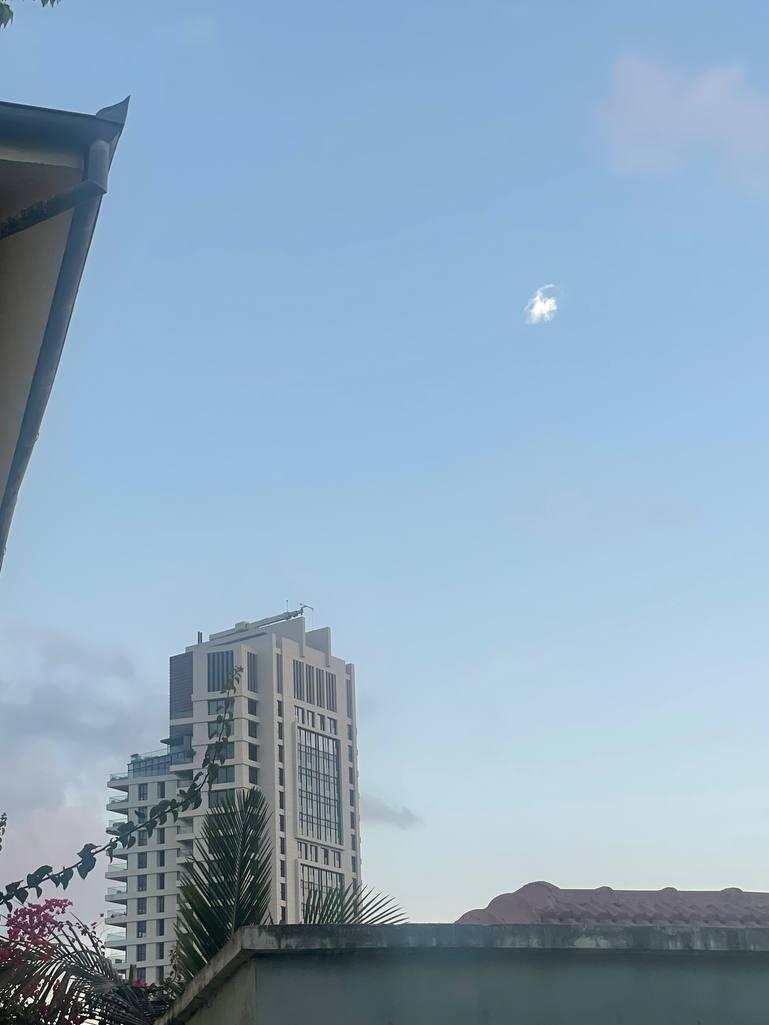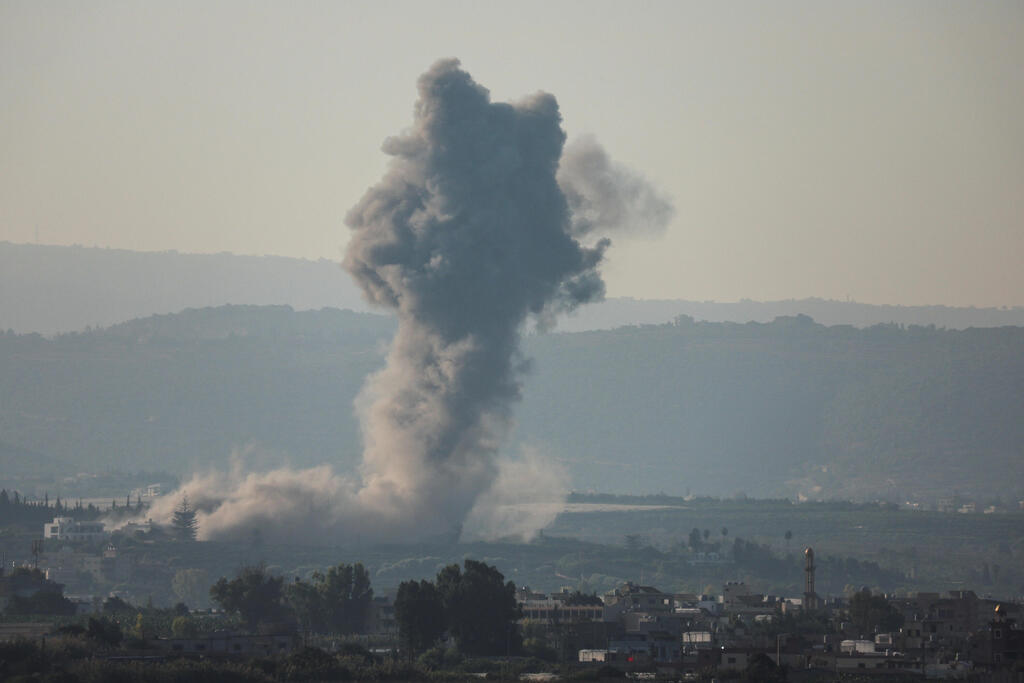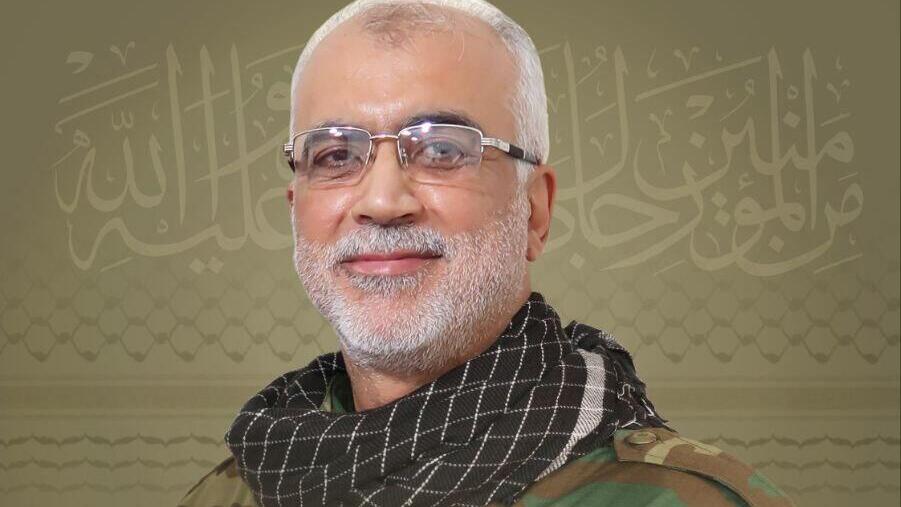Getting your Trinity Audio player ready...
Safed home hit by Hezbollah rocket
(Video: Faran Raz)
The IDF reported that approximately 40 rockets were launched from Lebanon into northern Israel Wednesday morning, with some intercepted and one landing in a home in Safed. No casualties were reported.
The army said that Hezbollah continues to target civilian areas and institutions in Israel’s rear, while the Israeli military is responding with strikes on Hezbollah’s terror sites and weapons depots.
Hezbollah claimed responsibility for the attack, saying it targeted the IDF Northern Command headquarters in Safed.
Meanwhile, Saudi network Al Hadath reported on Wednesday that Israel scattered leaflets in the area of the village of Kahale in the Mount Lebanon region, near the Beirut-Damascus highway.
According to the report, the leaflets called on residents of the village to evacuate within two hours.
Earlier on Wednesday, air raid sirens blared in the Tel Aviv metropolitan area and the Sharon Planes early Wednesday following rocket fire from Lebanon, marking the first time that central Israel has come under attack from Israel's northern neighbor.
The alarms sounded at 6:30 a.m. in cities including Tel Aviv, Glilot, Ramat Gan and Netanya, which experienced its first siren of the war. The attack came hours after the IDF struck a Hezbollah arms depot south of Beirut.
Hezbollah missile intercepted
(Video: Yair Sagi)
The IDF confirmed a single surface-to-surface missile was launched from Lebanon and intercepted by the David’s Sling air defense system, with no reported casualties or damage. The army later said that it struck the launcher from which the missile was fired toward central Israel.
Shortly after, the IDF resumed its strikes on southern Lebanon, targeting Hezbollah weapons depots and other military sites.
Sirens also sounded in Zichron Yaakov, Yokneam Illit and several coastal towns south of Haifa. The IDF reported that five rockets were launched from Lebanon at the Carmel and Wadi Ara area in northern Israel. According to the army, some of the rockets were intercepted by air defenses, and at least one impact was reported.
Rocket interceptions over Kibbutz Dalia
(Video: Anat Yaron)
A hostile aircraft infiltration alert was also issued for the northern city of Tiberias.
Saudi network Al Hadath reported that Hezbollah launched at least one missile toward the Tel Aviv metropolitan area. The report also claimed the missile was aimed at the Glilot military base.
6 View gallery


Hezbollah ballistic missile shot down over central Israel
(Photo: REUTERS/Amir Cohen)
“Hezbollah attempted to send a message by launching a single ballistic missile at Tel Aviv. The launch was timed to coincide with the start of the attack on October 7, at 6:29 a.m," the report said.
Hezbollah claimed responsibility for the attack, saying it fired an Iranian-made Ghadr 1 medium-range ballistic missile at the Mossad headquarters, which it accused of coordinating recent assassinations of senior Hezbollah leaders and the detonation of thousands of communication devices belonging to the terrorist group's operatives.
IDF Arabic spokesperson, Lt. Col. Avichay Adraee, urged residents in southern Lebanon to avoid returning to their homes for their safety.
Overnight, the IDF continued airstrikes across southern Lebanon and deeper into the country. According to Al Hadath, Israeli forces targeted a Hezbollah weapons depot in the town of Jiyeh, about 12 miles south of Beirut. Later, rocket sirens were heard in several towns in the Upper Galilee and the Arava region.
The army reported that a drone had crossed into Israel from the east, with an impact identified in the area, but no injuries were reported. The Islamic Resistance in Iraq, a group of pro-Iranian militias operating in Syria, claimed responsibility for the drone strike, saying it targeted "a site near the Jordan Valley."
Wednesday's attack on central Israel follows days of intense fighting between Israel and Hezbollah, with multiple rocket barrages targeting northern Israel. The escalation has prompted the United Nations Security Council to hold an emergency meeting on Lebanon, called by France, with UN Secretary-General António Guterres and Israeli Ambassador Danny Danon participating.
Lebanese Health Minister Firass Abiad reported Tuesday night that at least 569 people have been killed and 5,000 injured since Monday morning in Israeli airstrikes.
Meanwhile, Hezbollah confirmed that its head of missile operations Ibrahim Qubaisi was killed in an Israeli airstrike in Beirut’s Dahieh district.
In response to the escalating violence, Prime Minister Benjamin Netanyahu delayed his planned departure for the United Nations General Assembly, now set for Thursday. The Prime Minister's Office said that Netanyahu will hold consultations with security officials to discuss ongoing operations in Lebanon.






